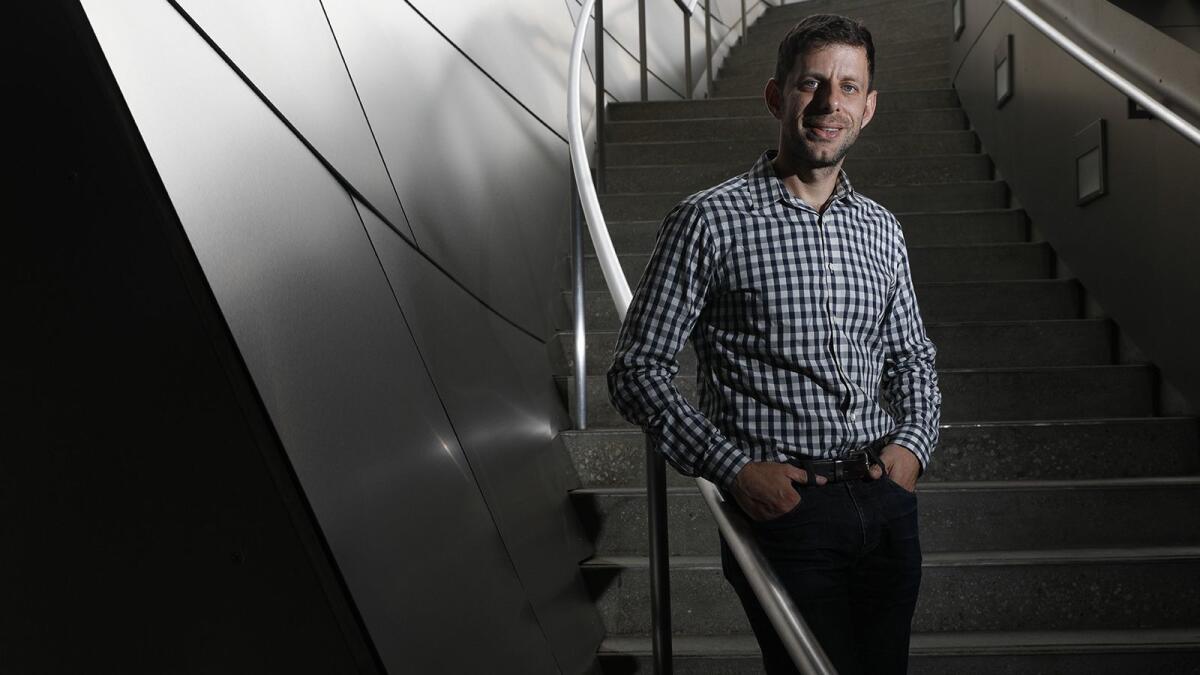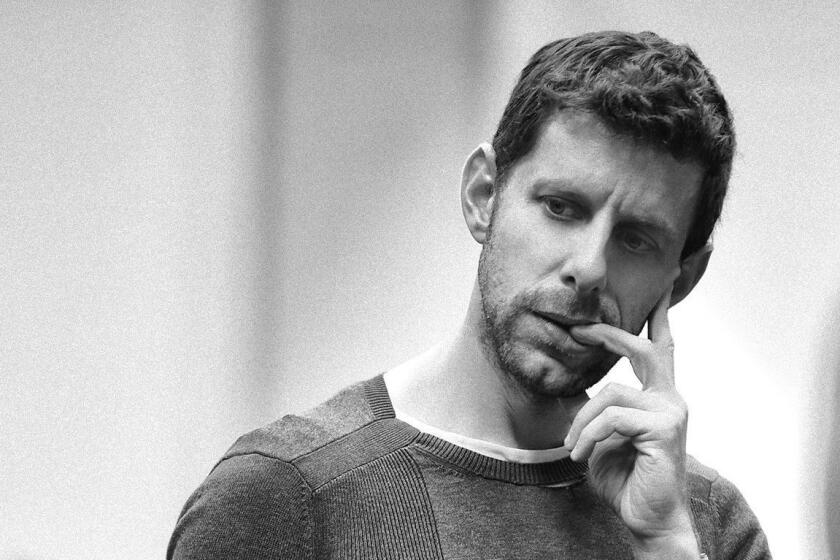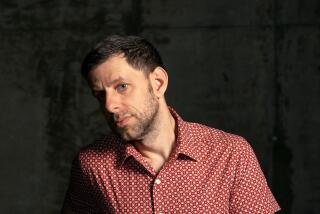Can Yuval Sharon make Detroit an opera haven? In a new post, he’ll try

- Share via
Michigan Opera Theatre has appointed Yuval Sharon as its new artistic director. That means only one thing: Detroit will be shaking up opera.
Motor City is suddenly positioned to become a center for opera in America, and its foot is on the pedal. Sharon, who is founder of experimental Los Angeles opera company the Industry and increasingly a sought-after director in Europe, just happens to be a car guy. Five years ago, the Industry captured the fancy of the opera world with the premiere of “Hopscotch,” an epic opera conceived by Sharon and performed in vehicles that drove around downtown L.A. and its environs.
To kick off his new position in Detroit, Sharon will stage a version of Wagner’s biggest opera, “Götterdämmerung” (which concludes the “Ring” cycle) next month in a parking garage that the Michigan company happens to own next to its opera house. Audience members, staying safe in their cars, will wend their way up the seven-story structure throughout the performance. It stars a leading Wagnerian soprano, Christine Goerke, who is also the artistic advisor for the production, called “Twilight: Gods.”
Sharon, a MacArthur fellow, served for three years at the Los Angeles Philharmonic as artist collaborator, staging Meredith Monk’s “Atlas,” John Cage’s “Europeras 1 & 2” and Lou Harrison’s “Young Caesar,” as well as premiering Annie Gosfield’s “War of the Worlds,” among other projects. He is Long Beach Opera’s interim artist advisor for the 2020-21 season.
Sharon said in a phone interview from Detroit that although he has accepted an initial five-year appointment from Michigan Opera Theatre and will spend five months a year there, he is leaving neither L.A. nor the Industry. Long Beach, however, can give up any hopes of him running that company.
Other than “Twilight: Gods,” his plans for Detroit are still in the early stage. Because of COVID-19, his first season will be 2021-22, and he said the lineup will be his — not, as many other companies are doing, the 2020 fall season merely moved back a year. And the last thing he wants to do is restart with entertaining fluff, a diversionary return to normal.
“No, opera’s power is for catharsis,” Sharon said, “and this is not a time for empty celebration. When we come back, we need transforming experience.” Detroit opera-goers should hold on to their hats.
The opening day of the Bayreuth Festival is always July 25; it is Germany’s most exclusive cultural event of the year.
That Sharon will transform the artistic nature of institutional performance in Detroit is of little question. The company was founded in 1971 by David DiChiera, a composer and musicologist who studied at UCLA and who also served as artistic director of Opera Pacific at the Segerstrom Center for the Arts in Costa Mesa. The two houses often shared productions. DiChiera, who died two years ago, essentially served conventional purposes and emphasized MOT as people’s opera.
Sharon intends to take the company in an entirely new direction. He remains committed to site-specific work that brings opera directly into the community, as he has done with the Industry. What will be different is that for the first time he will work to effect change from the inside rather than the outside. Although he has led major productions at the Bayreuth Festival in Germany and Vienna State Opera in Austria, Sharon has remained too edgy to have staged anything with a major American opera company. Sharon’s appointment puts those other companies on notice. Motown could well become Mopera Town.
Wayne S. Brown, the president and chief executive of Michigan Opera Theatre, said by phone that traditional opera will not be neglected in Detroit, but it is also “the moment for the next act. And the pandemic has shown us the way.”
As far as Sharon is concerned, Detroit will be the place where tradition and experimentation are interconnected. No one else has let him try his idea of a backward “La Bohème,” its acts performed in reverse order. But most important, he said, is the connection to the community. That is what he has loved about making L.A. opera for L.A., whereas staging “The Magic Flute” in Berlin is more like being a hit-and-run director. In Detroit opera, he said, Detroit comes first.
“Twilight: Gods” — which will have performances Oct. 17, 18 and 20, and which creators have affectionately dubbed “Parkingdammerung” — will be “Götterdämmerung” reduced to a single hour, with a chamber-size orchestra and different scenes on the different levels of the garage (concluding with a rooftop “Immolation”).
A first look at Frank Gehry’s Colburn School concert halls and plaza, which are key to making Grand Avenue in DTLA the nation’s premier arts district.
Furthermore, “Götterdämmerung” will be recontextualized by Detroit poet Marsha Music, providing narrations that pit Wagner’s gods against the evolution of the city of Detroit. In the spring this co-production with Lyric Opera of Chicago will be newly adapted for a parking structure there.
Other than that, Sharon said we probably won’t be hearing much from him or MOT until fall 2021. Despite a herculean, and brilliant, effort to make a last-minute video of “Sweet Land,” his Industry opera in March that was interrupted by the pandemic, he is not a fan of digital opera. Sharon said he is not averse to some online version of “Twilight: Gods,” but he insisted that opera needs to be mainly live.
Meanwhile, he remains busy trying to find ways to adapt plans for the spring Long Beach performances that, pandemic willing, concludes with a conflation of a new opera by George Lewis based on W.E.B. du Bois’ short story “The Comet” and Monteverdi’s “The Coronation of Poppea.”
Coronavirus may have silenced our symphony halls, taking away the essential communal experience of the concert as we know it, but The Times invites you to join us on a different kind of shared journey: a new series on listening.
More to Read
The biggest entertainment stories
Get our big stories about Hollywood, film, television, music, arts, culture and more right in your inbox as soon as they publish.
You may occasionally receive promotional content from the Los Angeles Times.













